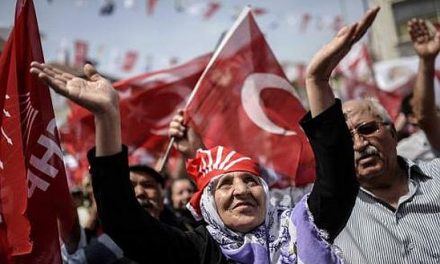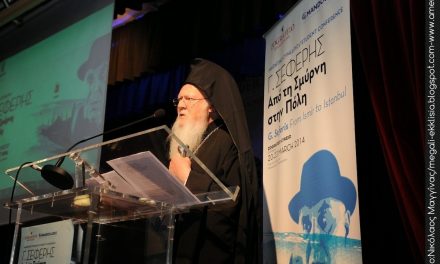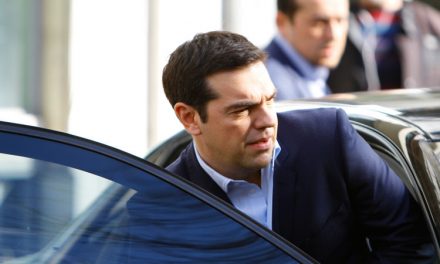As an Armenian who hails from Jordan and who struggles with his faith, I do agree with most Christians that this church is the site of the crucifixion, burial and resurrection of Jesus (hence its name in Arabic is Kanisat al-Qiyamah or the Church of the Resurrection). But almost every time I have entered the church, it has come across to me as a dank, rowdy, disorderly and gloomy place where Christian denominations often lay bare their divergences and tantrums.
What I have missed is the spirituality that I associate with houses of worship. In fact, during my legal stint as a second-track negotiator in Jerusalem in the 1990s, I often took friends or colleagues to other churches that had, in my opinion, a more vibrant spiritual pulse.
However, despite my personal proclivities, I was irate when the latest spat erupted between the Israeli authorities and the Greek Orthodox, Armenian Apostolic and Franciscan Catholic Churches. Leaders of the three churches decided to close the Church of the Holy Sepulchre in protest.
The dispute arose from two separate policies the Israeli authorities were pursuing.
One, the mayor of Jerusalem, Nir Barkat, was attempting to enforce a punitive and retroactive tax on church properties in the Holy City. The municipality claimed that the three Christian denominations collectively owed some 186 million shekels (or just over $53m) in back taxes on properties that are not deemed places of worship.
Two, the Israeli Ministerial Committee for Legislation was seeking to advance the “Bill of Church Lands” which would have controversially given the Israeli government the power to confiscate church property that had been leased out in West Jerusalem.
In most European countries, such as in Germany, taxing churches is not unusual, and parishioners are allowed in return to make donations to their churches that would then be deducted from their income tax returns. So I am not against the principle per se being applied in Israel, were it not for some uneasy facts:
First, those measures were imposed on the churches unilaterally and almost overnight without any consultation or attempt to inform them in advance in order to reach an agreement that could chart a way forward. This is not only contrary to customary norms of negotiation but it also reeks of fiscal punishment.
Second, the taxes were meant to be retroactive which is quite unusual for Israeli jurisprudence. No church could afford to pay such huge amounts of money running into the millions, especially when their own right to sell lands is also being severely restricted by Israeli legislation.
This is a rare example of capitulation by the Israeli authorities who consider themselves invincible.
Third, those fiscal issues between the churches of Jerusalem and the state of Israel have been part of ongoing negotiations and agreements with the Holy See. So there was no need for the mayor of Jerusalem to challenge the religious institutions in this peremptory manner and without adequate consultation.
Finally, one has to remember that matters associated with relations between church and state are subject to a status quo agreement that goes back to Ottoman times. This firmanor edict was issued by the Ottoman Sultan Osman III in 1757, and it had been observed by British and Jordanian rule of Jerusalem as well as by Israel since 1967. To impose such hefty demands on them summarily at this stage makes me wonder whether this was not just a fiscal decision, but rather a political one-upmanship by the Israeli authorities at the expense of the churches.
The relationship between the churches of Jerusalem and the Israeli political and municipal authorities has always been fraught with tension. The Israeli occupation has often pressured Christians – as well as Muslims, whether through vandalism or intimidation that is exercised against religious institutions and their followers or through discriminatory practices.
Mind you, Israel has found it difficult to accept that Christians in the Holy Land are as much against the occupation as their Muslim neighbours. This observation becomes more relevant when one adds that a large number of US Evangelical Christians are politically bound to Israel and often are at loggerheads with Arab Christians. After all, in January, the Christian church leaders in Jerusalem bluntly refused to meet US Vice President Mike Pence when he expressed an interest to visit the Church of the Nativity in Bethlehem.
In addition to the usual ructions between local Christians (and Muslims) on the one hand and Israel on the other, I wonder if these sudden measures were also an attempt by the mayor of Jerusalem to show some political oomph within his own political party at a time when the beleaguered PM Benjamin Netanyahu is facing serious corruption investigations. Is this Barkat’s attempt to throw his own name into the political arena?
Equally peculiar is the reticence of Christian leaders across the Arab World in expressing solidarity with their counterparts in the Holy Land. Once again, support came much more readily from Christian churches and organisations in Western Europe and the US. I wonder if this was in part due to the fact that those church leaders in the Arab World are afraid to talk lest they anger their political masters who are in bed with Israel.
However, what is much more meaningful to me is the fact that Israel suspended the two rapacious measures following the loud public protests by the churches. After all, Easter is at our doorsteps and Israel surely does not wish to end up with large numbers of frustrated pilgrims who cannot visit the Church of the Holy Sepulchre.
This is a rare example of capitulation by the Israeli authorities who consider themselves invincible. It further shows how Palestinians can initiate a powerful non-violent resistance that coerces Israel to stand down. It happened last year when Muslims defied in large numbers the Israeli decision to install metal detectors and cameras in the compound of the Dome of the Rock. And it happened again now with Christian protests.
Jerusalem is a holy city that is precious to all three Abrahamic faiths. So in this conflict between God and Caesar, Palestinians can draw strength from the biblical story of David defeating the giant Goliath of Gath. If it were done then in admittedly different circumstances, surely it can also be done today.



















